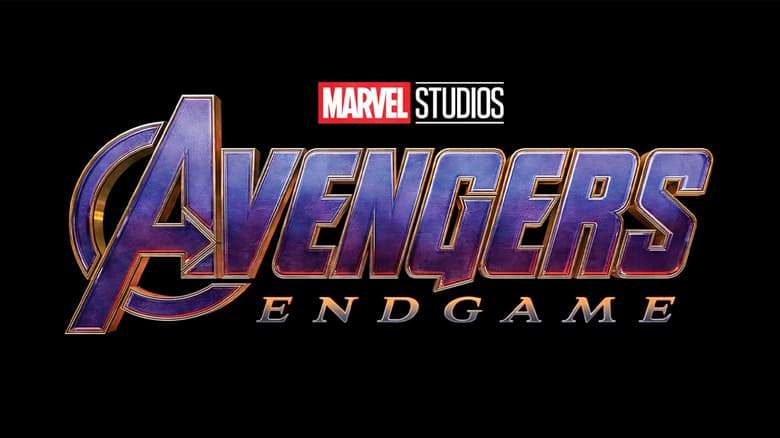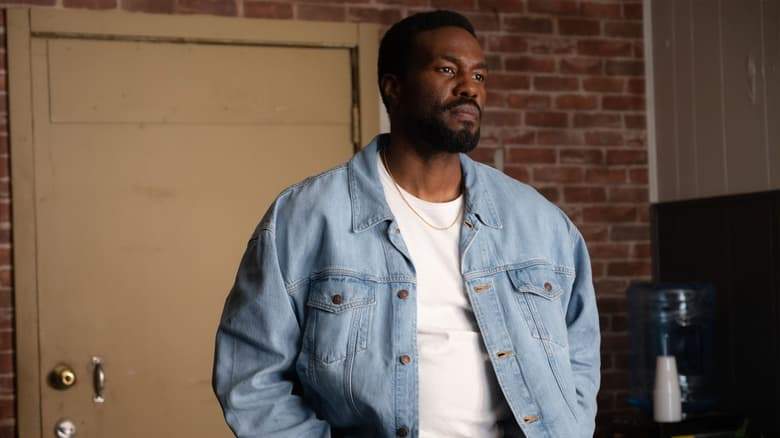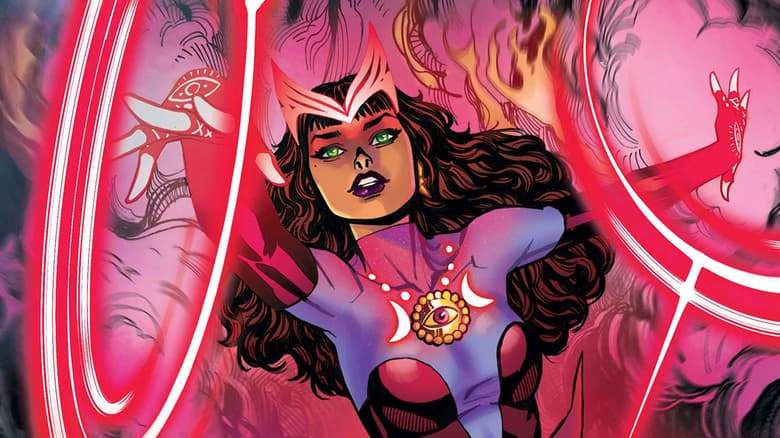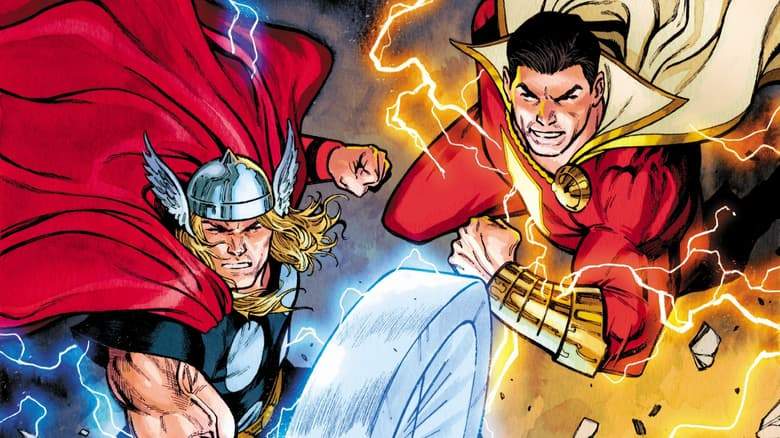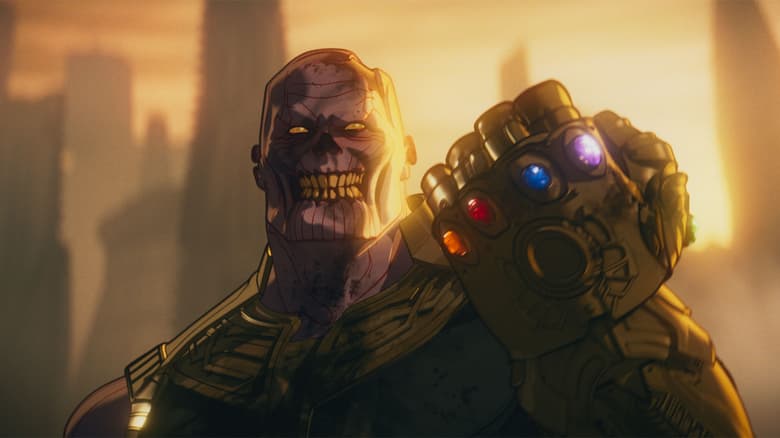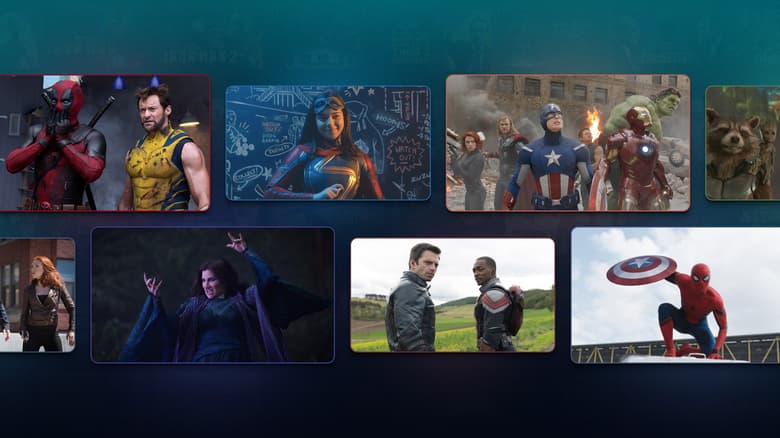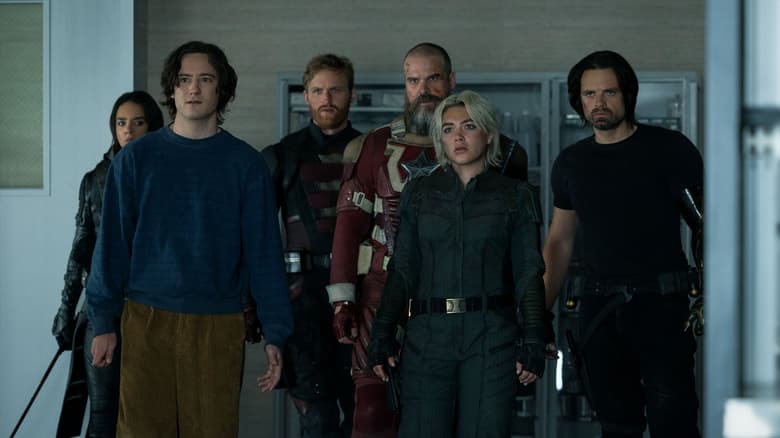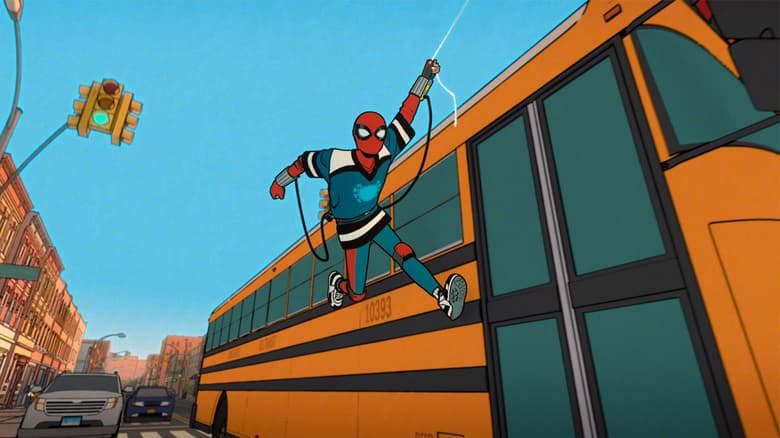The Origin Story of Earth-616 As Told by Its Creator, Writer David Thorpe
David Thorpe details the history of the Marvel multiverse from its beginnings in a 1983 Captain Britain story!
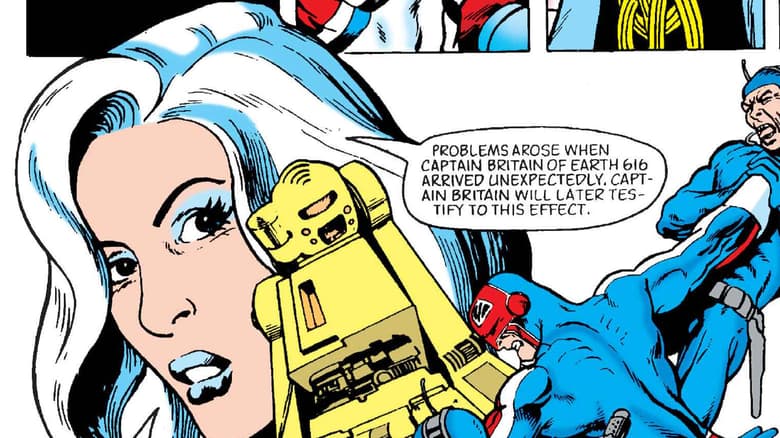
As Marvel fans have learned through decades of comic stories, the Marvel Universe is not alone. It’s merely one universe, Earth-616, in a bigger multiverse. In every other universe, there are different versions of our favorite characters – most famously Spider-Man, but several more. This part of Marvel storytelling has expanded the tales that can be told about our favorite Super Heroes and Super Villains, and it raises the stakes when things on Earth-616 are going a little too well. Marvel characters now regularly travel to and from the different universes to wreak havoc and rescue each other in a variety of conflicts.
Earth-616 is generally referred to as “our” universe. It has become such a Marvel institution that it was borrowed for the title of its upcoming documentary series Marvel’s 616, which begins streaming exclusively on Disney+ this week.
But when did we all find out that Earth-616 was not alone in the Marvel Universe? And how did it get the title “Earth-616” in the first place?
Writer David Thorpe was writing for Marvel UK in the early 1980s when he came up with the concept of Earth-616. This concept revealed that there was not one but many Marvel Universes! Read on to find out more about Earth-616 and how the Marvel multiverse came to be!
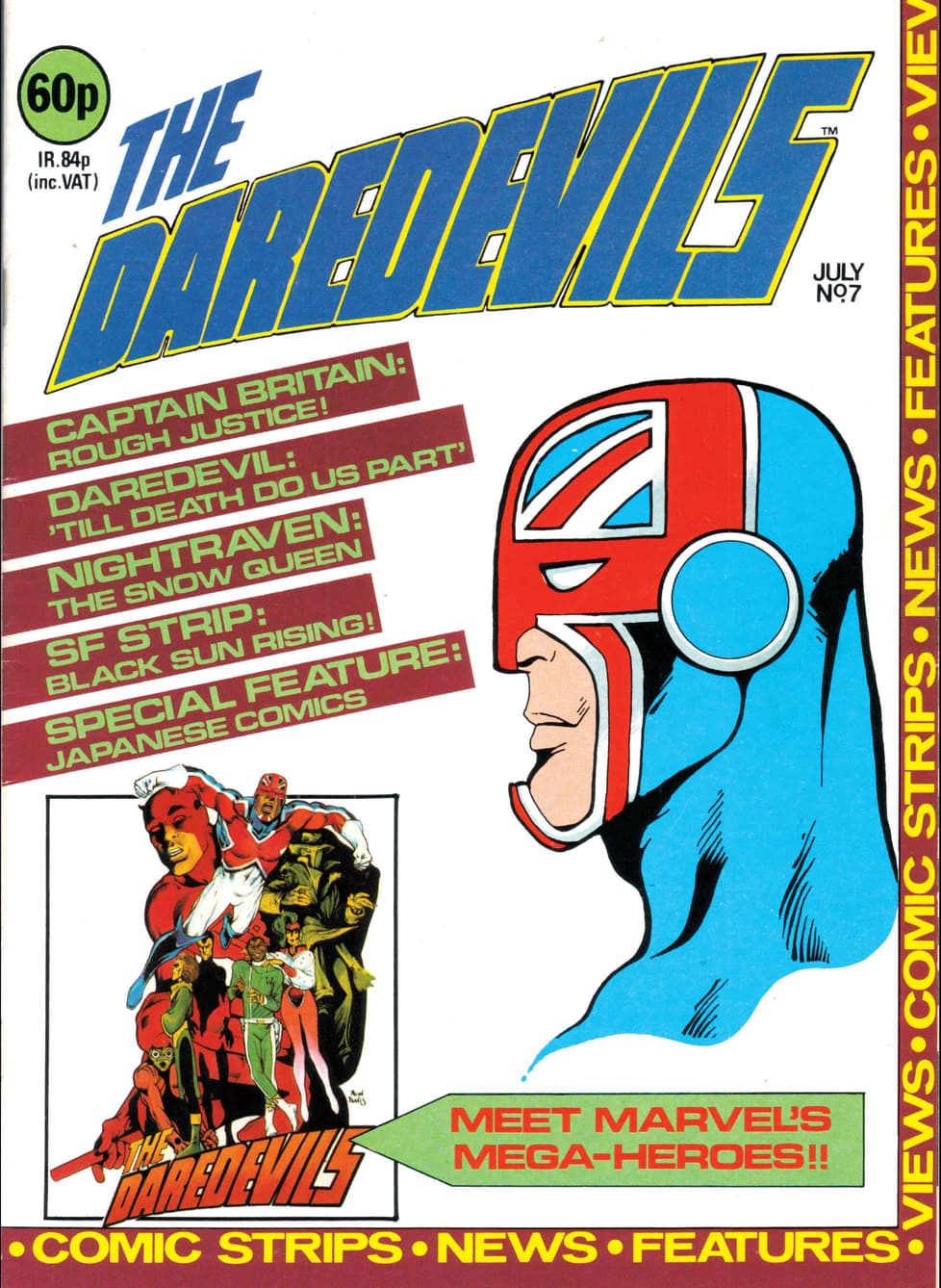
When did the concept of the multiverse in the Marvel universe come to you originally?
DAVID THORPE: Well, we have to wind back to when we decided just to relaunch CAPTAIN BRITAIN. It had been dormant for a little while. I think the last manifestation was by Steve Parkhouse when it was very different. It was much more to do with Merlin and all that King Arthur, Arthurian kind of stuff. We wanted to do something totally different. Paul Neary was the editor whose idea it was, who was managing editor of Marvel UK at that time.
Because we wanted to do anything we liked, we set a goal that Captain Britain was going to come back in this alternate universe, which was nothing to do with what was then the mainstream Marvel Universe, so that anything that we did wouldn't upset the continuity of the main Marvel Universe. So it's kind of ironic that this universe became the mainstream Marvel Universe, because that was the exact opposite of the intention at the time. But it's cool.
Then I set up this overarching narrative because they appeared in a monthly comic. Bear in mind that we only had six pages or so a month [because we produced lots of different American comics like AVENGERS]. So those pages were very crammed with storyline ideas, artwork, and everything that Alan Davis did. You couldn't get very much done in one particular issue.
There was a very long, overarching narrative that I developed, and that involved this character called Saturnyne, who was responsible for all the different alternative universes, alternative Earths. And she was trying to ensure the happy transition of all these Earths to the next evolutionary level.
And I guess, at the back of my mind, this being-- kind of leading up to the millennium and the idea of the age of Aquarius, that the coming age was going to be somewhat better than the age that we had in those days.
So, this Earth, Earth-616, was the one that was holding everything back because it was basically the worst-performing of all the other Earths. Saturnyne was sent to kind of put the evolutionary fluid into the water supply that we were all drinking. It was when Captain Britain discovered this evolved rat in the sewers that he first got the idea that this was going on.
There was a lot of fun, there was a lot of humor, there was a lot of satire. And we had our tongues in our cheeks because that would seem like the only way you could write Captain Britain, because otherwise, a character leaping from one tall building to another draped in a Union Jack could be misinterpreted.
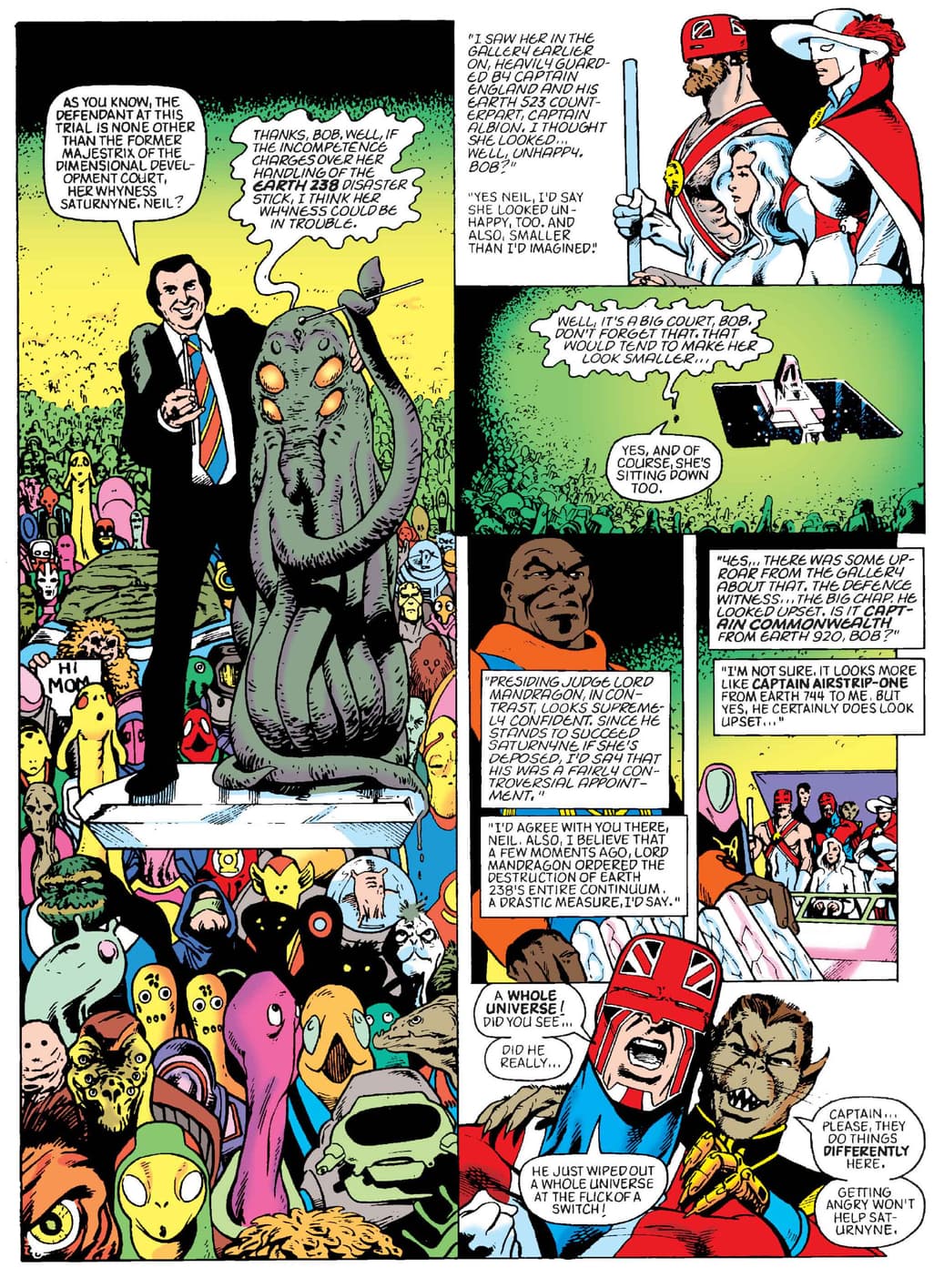
I've heard some rumors about where the number 616 may have come from. But I want you to explain, definitively, where that number came from.
Well, for years, I'd [gotten] emails from fans who say, “Why did you come up with 616?” And to be honest, I gave them each a different story. But, obviously, it's got something to do with 666, the number of the beast: 666 minus 50.
A nice, round number away from the scariest one.
Yeah. Alan Moore, who took over the series, he was the one who actually put it into print. Let's be fair. And both Alan and I shared a big interest in magick and the occult. And I got into chaos magick, and then I think Alan did, and so did Grant Morrison and quite a few of us, you know, in the comic scene at that time in the '80s.
Oh, that explains a lot, now, doesn't it?
It explains a lot. Yeah, I've got a lot in common with Grant Morrison in that respect. And I'm probably the only person in the universe who – whichever universe you like – who's got a degree in Dadaism and Surrealism. But Grant may have as well because a lot of his comics, particularly in Doom Patrol and so on, reference Dada and Surrealist ideas.
So, you introduced a multiverse, and you did it so you could have sort of alternate storylines for existing characters that didn't affect a main storyline. How did that affect you as a writer? Did it give you more freedom?
Absolutely. Yeah. We could have a lot of fun, do what we liked, pretty much.
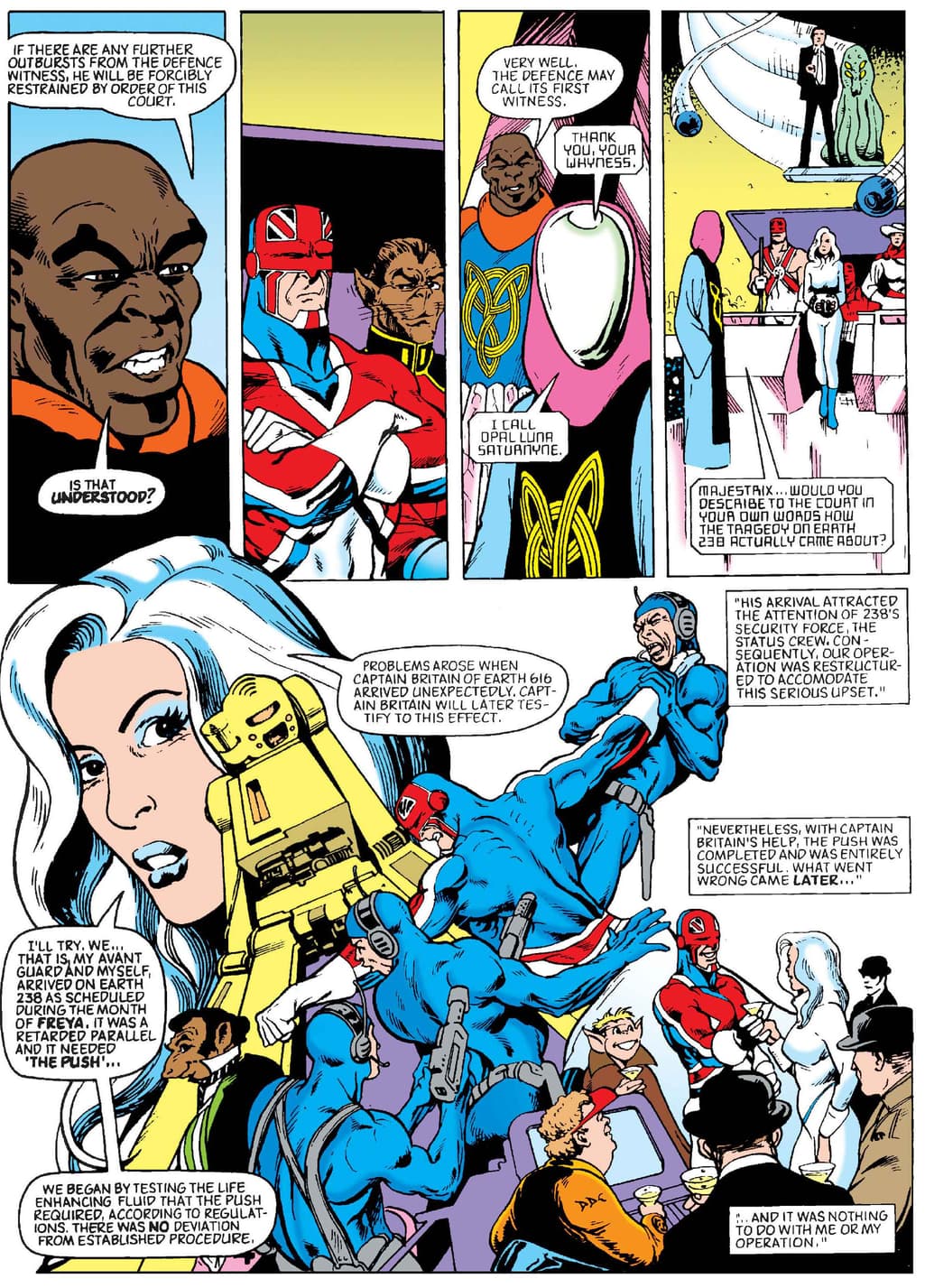
Did you ever expect that it would have an impact on the main universe, even while you were trying to keep things separate?
I didn't even think about it. We obviously weren't the first to come up with multiverses. You know, there's this trope of science fiction, alternative universes, alternative Earths, and so on. But the idea of, actually, an existing fictional universe having its own alternative universes is, I guess, a new thing.
The wonderful and awesome thing about Marvel Comics is the fact that, over the generations, it's essentially like one great, big novel written by loads of different people-- probably hundreds and hundreds of different writers and many more artists. And they all have to be internally consistent. And if they're not, you tend to get somebody somewhere writing in and pointing that out to you.
And in fact, of course, this was encouraged by Stan Lee in the '60s because he couldn't keep track of it himself. And he invented this idea of a No Prize that he would award readers with if they pointed out some inconsistency that they'd overlooked, you know? I've got a few No Prizes here. [On camera, David holds up nothing.]
This idea of consistency can be a bit limiting. As Marvel has grown, and this has been sort of billions and billions of pages of ink spilled, then it's bound to be the case that things happen that were not originally intended.
For instance, characters that I invented, like Mad Jim Jaspers… I never guessed that he would end up being the kind of massive, multidimensional Super Villain that he ended up being. That was not even my remotest idea. But that's what happens. But that happened within a different universe, I believe.
When you created the multiverse, how did you picture people traveling from each alternate universe?
Oh, portals, of course. Saturnyne can just open a portal and step through it. She's that kind of a girl.
What do you feel is the most dangerous thing about a multiverse?
I guess the dangerous thing, psychologically, is getting trapped in the wrong universe. So it's not your universe, it's a very, very strange one. And everything that seems familiar isn't. And nobody knows who you are. And you basically have to start from scratch. For me, I think that would be really, really scary.
What's the funniest concept you could think of for an alternate universe? Like, what would be the silliest alternate universe?
So, something that's funny for the reader but is not necessarily funny for the person [experiencing] it… It would have to be something where your main character was thrust into a world where cats were… We all know that cats actually rule the world, right? But imagine you went into a world where cats actually really were super intelligent, and they kept humans for pets and did not believe for one minute that humans were intelligent, and you had to prove to the cat that you were as intelligent as he is.
But seriously, if we're talking Marvel characters, a universe ruled by the Dire Wraiths wouldn't be a picnic.
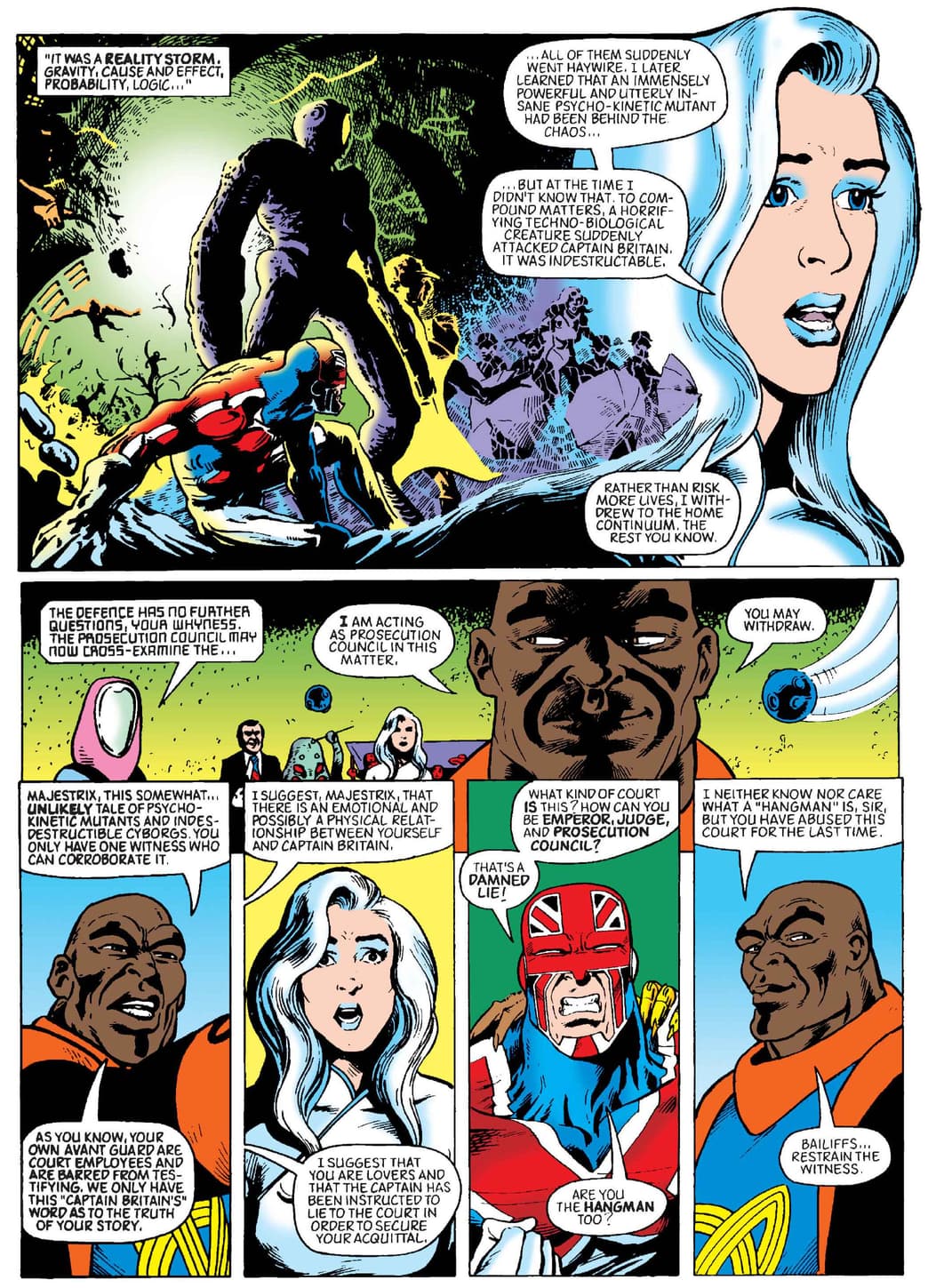
If you could pick a Marvel Super Villain to be a hero instead in an alternate universe, which would be the most compelling Super Villain as a hero?
You know what? I'm always reminded of Jim Starlin's stint on WARLOCK. There was a 12-issue series that he did where Warlock, who is this character who was kind of invented by the High Evolutionary to be a kind of Jesus Christ-type figure that would save the world-- and along comes Thanos. And he has to defeat Thanos.
And his power is that he's got this Soul Gem, which he has to use as a last resort because if he destroys anybody with the Soul Gem, then he absorbs their soul and becomes more and more like them. And Starlin's story is brilliant because he has the same scene twice – near the beginning and near the end, but told from the point of view of the younger, then the older Warlock.
The younger Warlock cannot understand how the older Warlock can behave the way that he does. But by the time you've got there in the series, you realize he's doing that because he made a series of decisions which meant he had to absorb the souls of all of these evil people in order to defeat them, and he's become more and more like them.
But it seems each step along the journey seemed like the right one at the time. By the time we reach the end of the series, he's almost become his own nemesis, his own opposite. In other words, he's become more and more like Thanos himself. And I think that is a really profound statement about human nature and the nature of conflict, both internal conflict in your own mind but also who you choose as your enemy.
You know, it's very much a yin-yang thing. I'm a great believer in Chinese philosophy, Taoism, and so on. And the idea of the yin-yang symbol is that the black always contains a little bit of the white, and the white contains a little bit of the black. And you can't have one without the other, right? So you can't get rid of evil and have good, and you can't get rid of good and have evil.
In a sense, your question is kind of like that. For a villain to become a good person in another universe, that whole universe itself would have to be very different in relation to this villain's own sense of morality, because even a villain has their own sense of justice and their own sense of what's right and what's wrong.
The whole idea of every villain as the hero of his own story.
And I think that good writing actually does that because you don't have characters that are all black and all white.
But this was a gift that Stan Lee gave to all of his characters, this immense psychological depth, which the competition didn't have at the time. And for me, I am eternally grateful for Stan Lee, especially because at least three of the characters that he created were disabled. I'm disabled, I've got cerebral palsy. Daredevil was blind, and you've got Professor Xavier, who was in a wheelchair.
But the hero that I identified with most as a child was Thor. The original origin of Thor, Dr. Donald Blake is a disabled doctor. He's on holiday in Eastern Europe, and he wanders into a cave, where he's got a [cane]. And he loses his [cane], and he's running away from the monsters, goes into a cave.
And the roof falls down, he's trying to get out. And he looks for a stick to use as a lever to lever a rock out of the way. And he can't do it, so he bangs it on the ground. And lo and behold, it turns into Mjolnir, the hammer of Thor. And he turns into Thor. So as a disabled child whose surname has Thor in it and who was born on a “Thor's day,” that was my guy.
For the latest news about everything else happening across the Marvel multiverse, stay tuned to Marvel.com!
You can stream every episode of Marvel’s 616 exclusively on Disney+ starting tomorrow!
The Daily Bugle
Can’t-miss news and updates from across the Marvel Universe!
